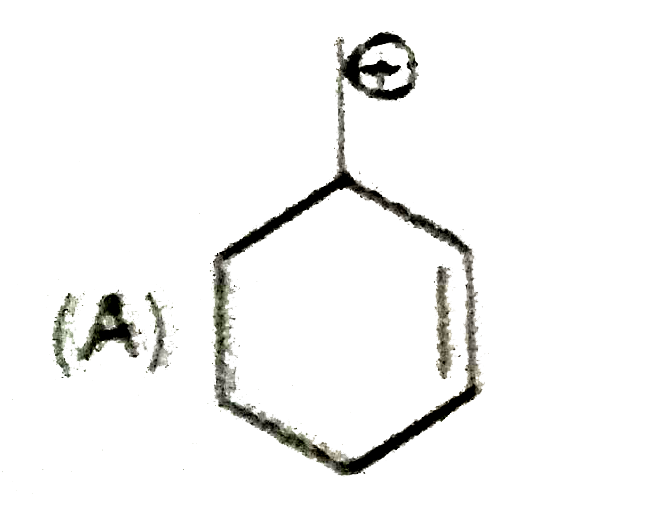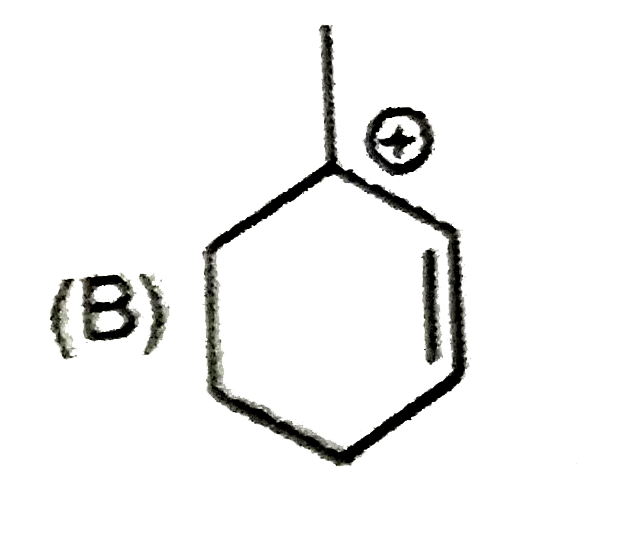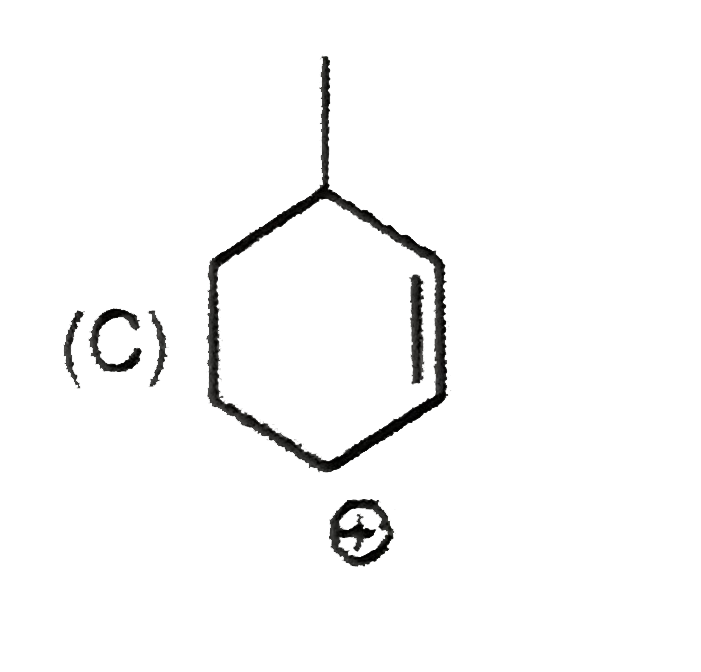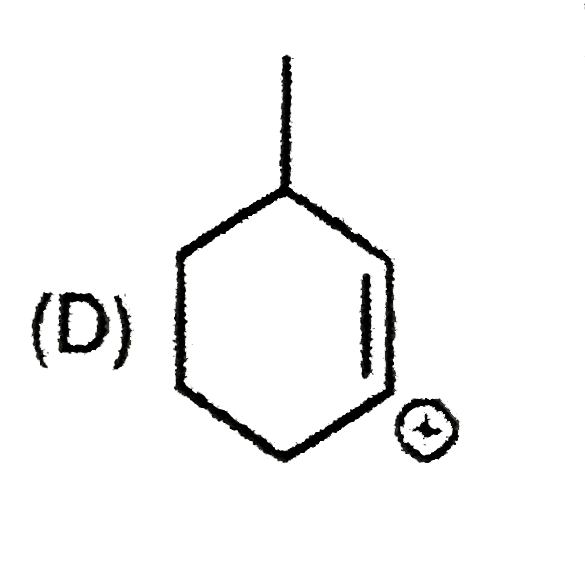Which is the most stable carbocation
Iso-propyl
Triphenylmethyl cation
Ethyl cation
π-propyl cation
The correct Answer is:B
To determine the most stable carbocation, we need to analyze the stability of different types of carbocations based on their structure and the surrounding groups. Here’s a step-by-step solution:
Step 1: Identify the Types of Carbocations
We have several carbocations to consider:
1. Isopropyl cation (CH3)2CHO+
2. Ethyl cation (CH3CH2)+
3. Propyl cation (CH3CH2CH2)+
4. Tri-phenyl cation (C6H5)3C+
Step 2: Understand Carbocation Stability
Carbocation stability generally increases in the following order:
- Primary (1°) < Secondary (2°) < Tertiary (3°)
This is due to the inductive effect and hyperconjugation provided by alkyl groups.
Step 3: Analyze Each Carbocation
1. Isopropyl cation: This is a secondary carbocation (2°) because it is attached to two alkyl groups.
2. Ethyl cation: This is a primary carbocation (1°) as it is attached to only one alkyl group.
3. Propyl cation: This is also a primary carbocation (1°).
4. Tri-phenyl cation: This is a tertiary carbocation (3°) and is stabilized by resonance from the three phenyl groups. The positive charge can be delocalized over the aromatic rings, significantly increasing stability.
Step 4: Compare Stability
- The isopropyl cation is more stable than both the ethyl and propyl cations due to being secondary.
- The tri-phenyl cation, being tertiary and having resonance stabilization from three phenyl groups, is more stable than the isopropyl cation.
Conclusion
The most stable carbocation among those listed is the tri-phenyl cation (C6H5)3C+ due to its resonance stabilization.
Final Answer
The most stable carbocation is the tri-phenyl cation (C6H5)3C+.
---
We have several carbocations to consider:
1. Isopropyl cation (CH3)2CHO+
2. Ethyl cation (CH3CH2)+
3. Propyl cation (CH3CH2CH2)+
4. Tri-phenyl cation (C6H5)3C+
Carbocation stability generally increases in the following order:
- Primary (1°) < Secondary (2°) < Tertiary (3°)
This is due to the inductive effect and hyperconjugation provided by alkyl groups.
1. Isopropyl cation: This is a secondary carbocation (2°) because it is attached to two alkyl groups.
2. Ethyl cation: This is a primary carbocation (1°) as it is attached to only one alkyl group.
3. Propyl cation: This is also a primary carbocation (1°).
4. Tri-phenyl cation: This is a tertiary carbocation (3°) and is stabilized by resonance from the three phenyl groups. The positive charge can be delocalized over the aromatic rings, significantly increasing stability.
- The isopropyl cation is more stable than both the ethyl and propyl cations due to being secondary.
- The tri-phenyl cation, being tertiary and having resonance stabilization from three phenyl groups, is more stable than the isopropyl cation.
The most stable carbocation among those listed is the tri-phenyl cation (C6H5)3C+ due to its resonance stabilization.
The most stable carbocation is the tri-phenyl cation (C6H5)3C+.
Topper's Solved these Questions
- BOOK - ERRORLESSCHAPTER - GENERAL ORGANIC CHEMISTRY EXERCISE - NCERT BASED QUESTIONS (Organic Reactions and their Mechanism )46videos
GENERAL ORGANIC CHEMISTRY
- BOOK - ERRORLESSCHAPTER - GENERAL ORGANIC CHEMISTRY EXERCISE - NCERT BASED QUESTIONS (Structural and Stereo Isomerism )99videos
GENERAL ORGANIC CHEMISTRY
- BOOK - ERRORLESSCHAPTER - GENERAL ORGANIC CHEMISTRY EXERCISE - ASSERTION AND REASON14videos
GENERAL ORGANIC CHEMISTRY
- BOOK - ERRORLESSCHAPTER - ENVIRONMENTAL CHEMISTRYEXERCISE - ASSERTION & REASON7videos
ENVIRONMENTAL CHEMISTRY
- BOOK - ERRORLESSCHAPTER - HYDROCARBONSEXERCISE - ASSERTION & REASON18videos
HYDROCARBONS
Similar Questions
Knowledge Check
- Question 1 - Select One
The most stable carbocation is
A B
B C
C D
D
- Question 2 - Select One
The most stable carbocation is
A B
B C
C D
D
- Question 3 - Select One
The most stable carbocation is
A B
B C
C D
D

